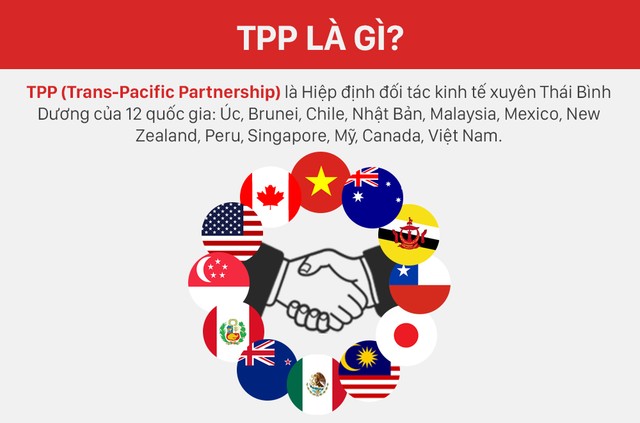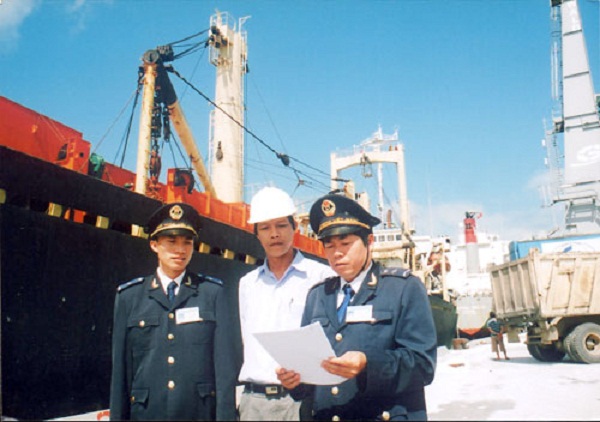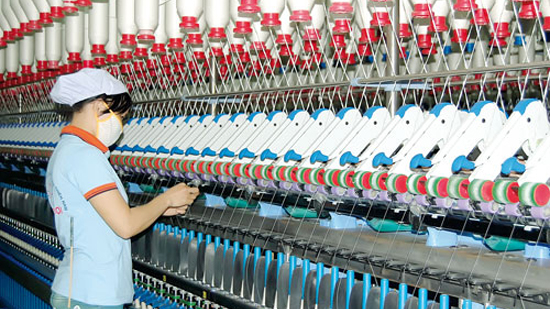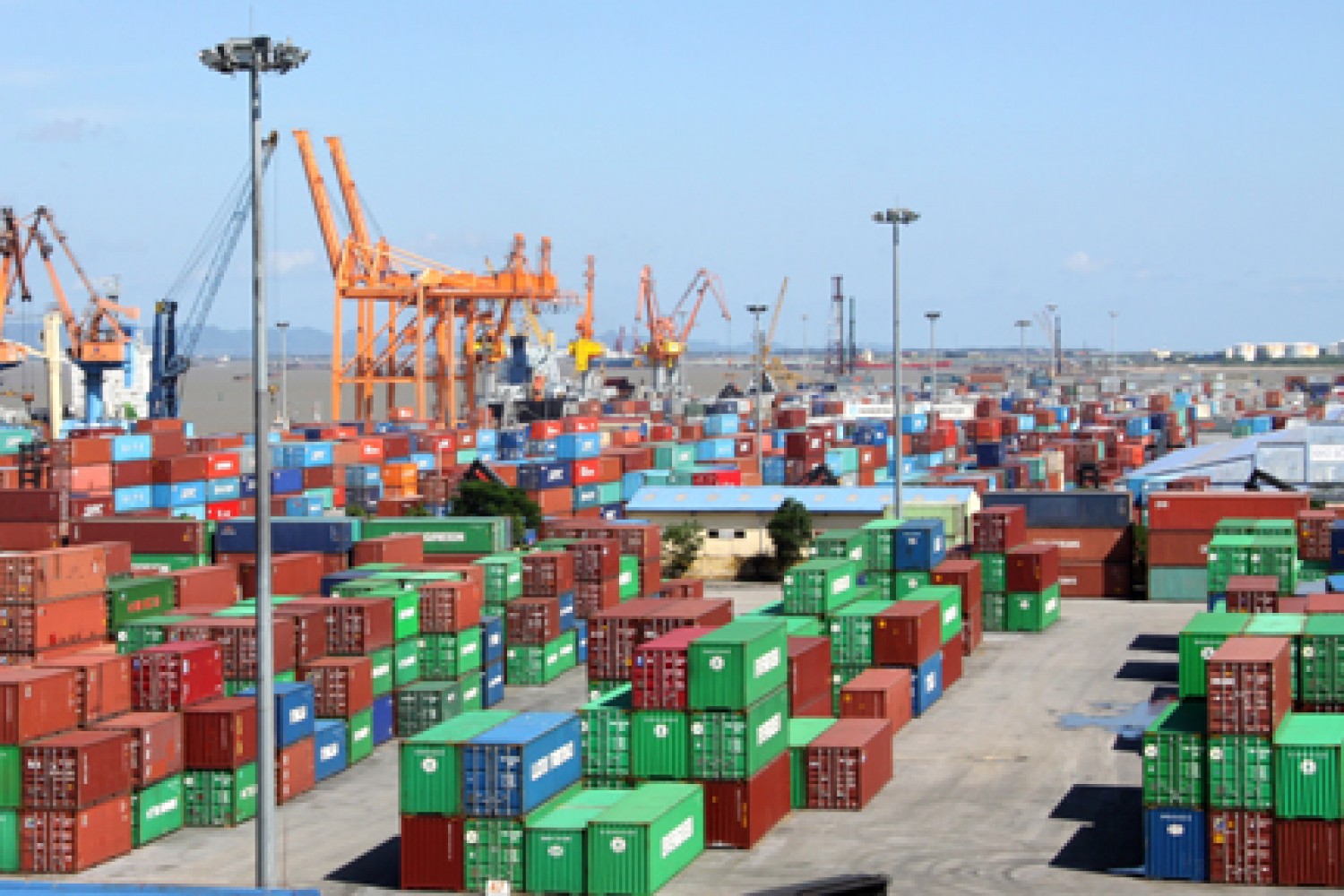TPP - Chapter 16 - Competition Policy
Chapter 16 of the TPP Agreement stipulates rules, rights, and obligations related to competition when participating in the TPP Agreement.
CHAPTER 16
COMPETITION POLICY
Article 16.1: Competition laws, Competent Authorities, and Anti-competitive Business Conduct 1
Each Party shall adopt or maintain national competition laws to address anti-competitive business conduct for the purpose of promoting economic efficiency and consumer welfare, and shall take appropriate action with respect to such conduct. These laws shall take into account the APEC Principles to Enhance Competition and Regulatory Reform signed in Auckland on September 13, 1999.
Each Party shall strive to apply national competition laws to all commercial activities within its territory. 2 However, each Party may exempt certain conduct from national competition laws, provided that such exemptions are transparent and based on public policy or public interest grounds.
Each Party shall maintain one or more authorities responsible for the implementation of national competition laws (the competition authorities). Each Party shall ensure that these authorities' enforcement policies are consistent with the objectives set out in paragraph 1 and do not discriminate on the basis of nationality.
Article 16.2: Procedural Fairness in Enforcement of Competition Laws 3
Each Party shall ensure that before imposing a sanction or remedy against a person for the violation of national competition laws, the Party shall provide the person with:
(a) information about the competition authorities’ concerns;
(b) a reasonable opportunity to be represented by counsel; and
(c) a reasonable opportunity to present evidence in defense, unless a Party may require the person to present evidence within a reasonable time after the imposition of a temporary sanction or remedy.
Specifically, each Party shall provide the person with a reasonable opportunity to present evidence or testimony in defense, including, where applicable, presenting expert analysis, questioning any witnesses, examining and rebutting the evidence presented in the enforcement proceeding. 4
Each Party shall adopt or maintain written procedures under which its national competition law investigations are conducted. Where these investigations are not subject to specific timeframes, the competition authorities of each Party shall endeavor to carry out investigations within a reasonable time period.
Each Party shall adopt or maintain rules of procedure and evidence applicable to enforcement proceedings concerning alleged violations of national competition laws and the determination of sanctions and remedies. These rules shall include the procedures for introducing evidence, including expert evidence where applicable, and shall apply equally to all parties in enforcement proceedings.
Each Party shall provide a person subject to a sanction or remedy due to a violation of national competition laws the opportunity to seek review of the sanction or remedy, including the consideration of alleged violations by a court in accordance with the laws of that Party.
Each Party shall allow its competition authorities to settle alleged violations voluntarily with the approval of the authority and the person subject to the enforcement action.
If a competition authority of a Party issues a public notice revealing the existence of an ongoing investigation, that authority shall avoid suggesting in that notice that the person referred to in the notice has engaged in the alleged conduct or has violated the Party's national competition laws.
If a competition authority of a Party alleges a violation of national competition laws, that authority shall have the responsibility for establishing the legal and factual basis of the alleged violation in the enforcement proceedings 5.
Each Party shall protect confidential business information and other confidential information under its law, obtained by national competition authorities during an investigation. If a competition authority of a Party uses or intends to use such information in an enforcement proceeding, the Party shall, where appropriate and permitted by its laws, provide procedures allowing the person under investigation to access promptly the information necessary to prepare an adequate defense against the allegations of the national competition authority.
Each Party shall ensure that its competition authorities provide a person under investigation for the potential violation of national competition laws a reasonable opportunity to consult with the competition authorities on legal, factual, or procedural matters arising during the investigation.
Article 16.3: Private Rights of Action 6
For the purposes of this Article, "private rights of action" means the right of a person to seek redress including injunctive, monetary, or other remedies from a court or independent tribunal for harm caused to that person's business or property by a violation of national competition laws, either independently or following a finding of a violation by the competition authority.
Recognizing that private rights of action can be an important supplement to the public enforcement of national competition laws, each Party is encouraged to adopt or maintain laws or other measures that provide for such private rights of action.
If a Party does not adopt or maintain laws or other measures providing for private rights of action, the Party is encouraged to adopt or maintain laws or other measures allowing a person to:
(a) request the national competition authority to initiate an investigation into an alleged violation of national competition laws; and
(b) seek redress from a court or independent tribunal following a finding of a violation by the national competition authority.
Each Party shall ensure that the rights established in paragraph 2 or 3 are available to persons of the other Party on terms no less favorable than those accorded to its persons.
A Party may establish reasonable criteria for the exercise of any rights that it creates or maintains under this Article.
Article 16.4: Cooperation
The Parties recognize the importance of cooperation and coordination between their respective competition authorities to enhance the effective enforcement of competition laws in the free trade area. Each Party shall:
(a) cooperate on competition policy by exchanging information on developments in competition policy; and
(b) cooperate, as appropriate, on competition law enforcement matters, including through notification, consultation, and information exchange.
The competition authorities of a Party may consider entering into a cooperation arrangement with the competition authorities of the other Party setting out mutually agreed terms of cooperation.
The Parties agree to cooperate in a manner consistent with their respective laws, regulations, and important interests, and within their available resources.
Article 16.5: Technical Cooperation
Recognizing that the Parties may benefit from sharing their diverse experiences in developing, implementing, and enforcing competition laws as well as developing and enforcing competition policies, the Parties shall consider undertaking mutually agreed technical cooperation activities within their available resources, including:
(a) providing advice or training on relevant issues, including through the exchange of personnel;
(b) exchanging information and experiences on competition advocacy, including strategies to promote a competition culture; and
(c) assisting a Party with the implementation of new national competition laws.
Article 16.6: Consumer Protection
The Parties recognize the importance of consumer protection policies and enforcement to produce efficient and competitive markets and enhance consumer welfare in the free trade area.
For the purposes of this Article, fraudulent and deceptive commercial activities refer to activities that harm consumers or pose a threat of such harm if not prevented, such as:
(a) misleading factual misrepresentations, including implied factual misrepresentations that cause significant economic harm to consumers;
(b) failing to deliver products or provide services to consumers after payment; or
(c) collecting or withdrawing funds from financial, telephonic, or other consumer accounts without authorization.
Each Party shall adopt or maintain consumer protection laws or other laws or regulations proscribing fraudulent and deceptive commercial activities. 7
The Parties recognize that fraudulent and deceptive commercial activities increasingly transcend national boundaries and that cooperation and coordination between the Parties are essential to address this issue effectively.
The Parties shall promote, as appropriate, cooperation and coordination on mutual interest matters related to fraudulent and deceptive commercial activities, including the enforcement of their consumer protection laws.
The Parties shall endeavor to cooperate and coordinate on the matters referred to in this Article through their relevant national public bodies or officials responsible for consumer protection policy, law, or enforcement, as identified by each Party, and in accordance with their respective laws, regulations, and important interests, and within their available resources.
Article 16.7: Transparency
The Parties recognize the value of making their competition enforcement policies as transparent as possible.
Recognizing the value of the APEC Competition Policy and Law Database in enhancing the transparency of national competition laws and policies, and enforcement activities, each Party shall endeavor to maintain and update its information in that database.
Upon request of a Party, the other Party shall provide information, including:
(a) its competition law enforcement policies and activities; and
(b) exemptions and exclusions from its national competition laws, provided that the request specifies particular goods or services and the market in question, and includes information explaining how the exemption or exclusion may hinder trade or investment between the Parties.
Each Party shall ensure that its final decisions finding a violation of national competition laws are in writing and set out, in non-criminal matters, the findings of fact and reasons, including, where applicable, the legal and economic analysis on which the decisions are based.
Each Party shall also ensure that such final decisions referred to in paragraph 4 and any implementing orders are published, or where publication is not possible, are made available to the public in a manner that facilitates the understanding by interested persons and the other Party. Each Party shall ensure that the published or made available written decisions or orders do not disclose confidential information protected under its laws.
Article 16.8: Consultations
To foster understanding between the Parties or to address specific matters arising under this Chapter, upon request of a Party, the other Party shall enter into consultations with the requesting Party.
Article 16.9: Exclusion from Dispute Settlement
No Party shall have recourse to dispute settlement under Chapter 28 (Dispute Settlement) with respect to any matter arising under this Chapter.
----------------------------------------------------------
Footnotes
1 This Article is subject to Annex 16-A (Application of Articles 16.2, 16.3, and 16.4 to Brunei).
2 For greater certainty, nothing in paragraph 2 shall be construed to prevent a Party from applying its competition laws to conduct occurring outside its territory that has anti-competitive effects within its territory.
3 This Article is subject to Annex 16-A (Application of Articles 16.2, 16.3, and 16.4 to Brunei).
4 For purposes of this Article, "enforcement proceedings" means judicial or administrative proceedings following an investigation into an alleged violation of competition laws.
5 Nothing in paragraph 7 shall prevent a Party from requiring a person alleged to violate to provide details to defend allegations.
6 This Article is subject to Annex 16-A (Application of Articles 16.2, 16.3, and 16.4 to Brunei).
7 For greater certainty, the laws or regulations that a Party adopts or maintains concerning these activities may be civil or criminal in nature.
TABLE OF CONTENTS
TPP - Chapter 01 - General Definitions and Provisions
TPP - Chapter 02 - National Treatment and Market Access for Goods
TPP - Chapter 03 - Rules of Origin and Origin Procedures
TPP - Chapter 04 - Textiles and Apparel
TPP - Chapter 05 - Customs Administration and Trade Facilitation
TPP - Chapter 06 - Trade Remedies
TPP - Chapter 07 - Sanitary and Phytosanitary Measures
TPP - Chapter 08 - Technical Barriers to Trade
TPP - Chapter 10 - Cross-Border Trade in Services
TPP - Chapter 11 - Financial Services
TPP - Chapter 12 - Temporary Entry for Business Persons
TPP - Chapter 13 - Telecommunications
TPP - Chapter 14 - Electronic Commerce
TPP - Chapter 15 - Government Procurement
TPP - Chapter 16 - Competition Policy
TPP - Chapter 17 - State-Owned Enterprises and Designated Monopolies
TPP - Chapter 18 - Intellectual Property
TPP - Chapter 20 - Environment
TPP - Chapter 21 - Cooperation and Capacity Building
TPP - Chapter 22 - Competitiveness and Business Facilitation
TPP - Chapter 23 - Development
TPP - Chapter 24 - Small and Medium Enterprises
TPP - Chapter 25 - Regulatory Coherence
TPP - Chapter 26 - Transparency and Anti-Corruption
TPP - Chapter 27 - Administrative and Institutional Provisions
TPP - Chapter 28 - Dispute Settlement
TPP - Chapter 29 - Exceptions and General Provisions
- Key word:
- Competition Policy
- TPP
- TPP Agreement
- Cases of land rent exemption and reduction under the latest regulations in Vietnam
- Economic infrastructure and social infrastructure system in Thu Duc City, Ho Chi Minh City
- Regulations on ordination with foreign elements in religious organizations in Vietnam
- Increase land compensation prices in Vietnam from January 1, 2026
- Determination of land compensation levels for damage during land requisition process in Vietnam
- Who is permitted to purchase social housing according to latest regulations in Vietnam?
-

- TPP - Chapter 01 - General Provisions and Definitions
- 12:10, 11/07/2024
-

- TPP - Chapter 05 - Customs Administration and ...
- 12:10, 11/07/2024
-

- TPP - Chapter 04 - Textile and apparel goods
- 12:10, 11/07/2024
-

- TPP - Chapter 08 - Technical Barriers to Trade
- 12:10, 11/07/2024
-

- TPP - Chapter 07 - Sanitary and Phytosanitary ...
- 12:10, 11/07/2024
-

- Notable new policies of Vietnam effective as of ...
- 16:26, 11/04/2025
-
.Medium.png)
- Notable documents of Vietnam in the previous week ...
- 16:21, 11/04/2025
-
.Medium.png)
- Notable documents of Vietnam in the previous week ...
- 16:11, 02/04/2025
-
.Medium.png)
- Notable new policies of Vietnam to be effective ...
- 16:04, 02/04/2025
-
.Medium.png)
- Notable new policies of Vietnam effective from ...
- 14:51, 21/03/2025
 Article table of contents
Article table of contents
